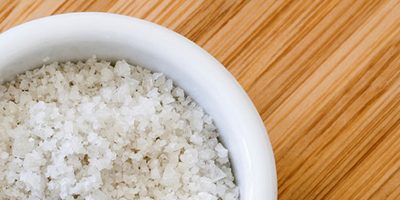
Bread Bakers - Salt Shakers?
Less than half of bread products in Australian supermarkets have acceptable salt levels, according to data released today by Sydney based, The George Institute for Global Health.
The startling report also reveals that salt levels in Australian bread products have not changed since 2007 despite the government’s ‘Food and Health Dialogue’ focusing on salt, and some companies acting on their commitments to reduce salt in their products.
Salt is one of the leading contributors to heart disease and stroke which kills one-in-three Australians every year. Bread accounts for about one fifth of daily salt intake for Australians who on average consume between 5 to10 times the 1g of salt per day required for good health.
The government’s much heralded Food and Health Dialogue, established in 2009, sets out to deliver a ”framework for government, health groups and industry to work collaboratively across the food supply chain to improve dietary intakes.”
However, according to Professor Bruce Neal, Senior Director at The George Institute for Global Health, much more needs to be done. “The Dialogue is now in its second year and has only established salt targets for bread and breakfast cereals. This doesn’t bode well for salt reduction let alone all the other food supply issues that need tackling like sugar, saturated fat and serving sizes.”
In the UK, Canada and the US targets have been set for 80 food types with significant progress made in reducing salt intake. In the UK voluntary targets introduced in 2006 have led to a reduction in salt intake of 10 percent, saving an estimated 6,000 lives every year. “Government and industry here in Australia seem intent on very slowly re-inventing the wheel rather than learning from what has been successfully achieved in other countries. This is going to cost a lot of money and a lot of lives. The Food and Health Dialogue should be urging food companies to reduce salt levels in foods in line with targets already set overseas and then work with the Australian industry to consider Australian specific targets for the few product categories that might require a different approach in Australia” he continued.
“Some companies have shown a real commitment to improve the nutritional value of their products. George Weston Foods, manufacturer of brands such as ‘Tip Top’ and ‘Burgen’, have decreased the levels of salt across their entire bread range to meet the government’s target. Other companies need to follow their excellent example,” explained Professor Neal.
“The George Institute has established a database to monitor industry salt reduction efforts and the success or failure of the Food and Health Dialogue. We are going to ensure that industry and government are held accountable. Australians need to know what is and is not being achieved and by who” he added.
“Those responsible for the food supply have a huge impact on the nation’s health. Making sure these companies understand their responsibility and ensuring they are accountable to their customers for their actions is an important step forward,” concluded Professor Neal.






